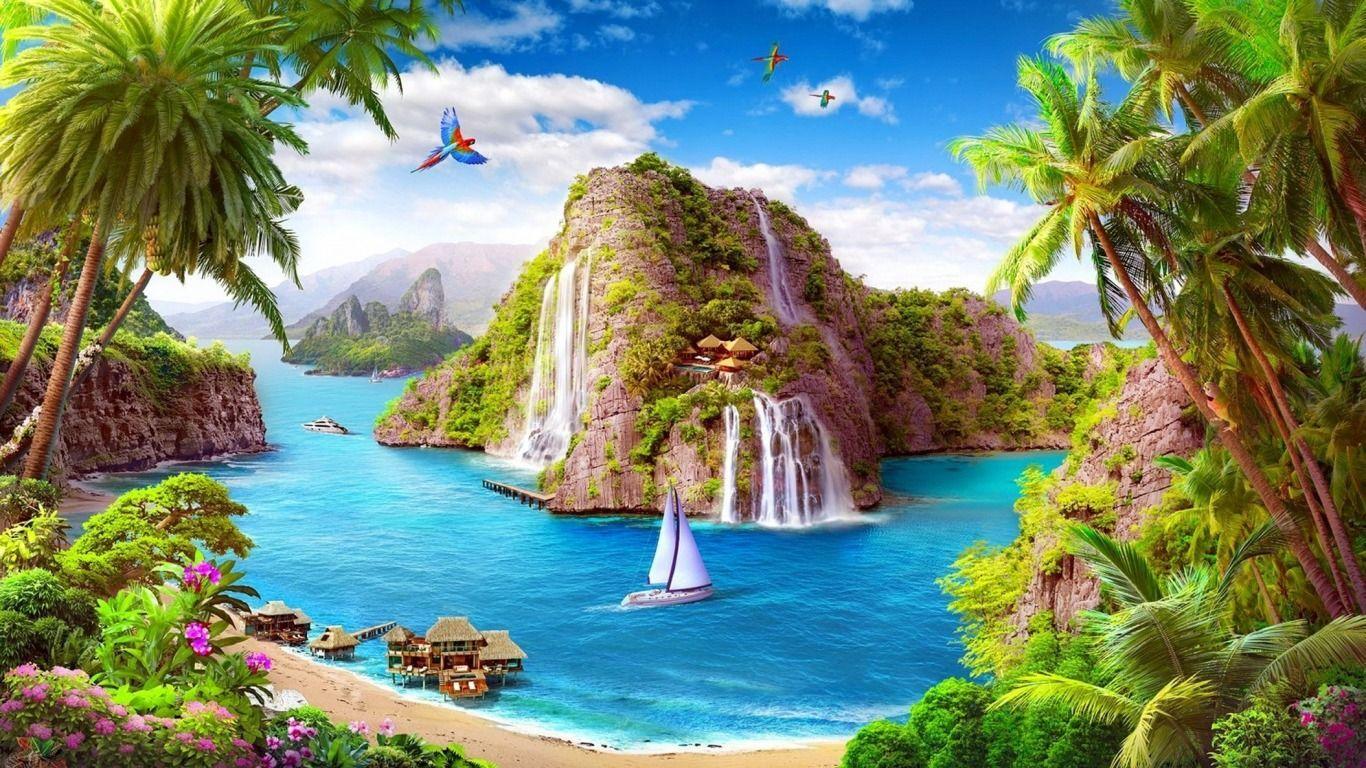In the realm of contemporary discourse, we often confront the dichotomy of materialism and spirituality. The Bahá’í teachings offer profound insights into this complex interplay. One might ponder: has humanity, in its relentless pursuit of material gain, inadvertently forged a path toward a metaphorical paradise lost? Furthermore, how do these contemplations resonate with the recent calamities, such as the devastating fires in Hawaii, which serve as a grim reminder of nature’s fury and our place within it?
The Bahá’í Faith emphasizes the unity of humanity and the importance of spiritual development. Central to its teachings is the idea that true wealth lies not in material possessions, but in the enhancement of the human spirit through service, justice, and love. Greed, in this perspective, is a detrimental force that not only hampers individual growth but also undermines societal well-being. The catastrophic events in Hawaii in 2023 illustrate the ramifications of neglecting these teachings. Could these disasters be seen as a manifestation of our collective moral failings, wherein the relentless pursuit of economic interest blinds us to the fragility of our environment and promotes a culture of consumption over conservation?
Historically, humanity has oscillated between periods of spiritual upliftment and material excess. The Bahá’í writings caution against the perils of unchecked greed, which can lead to societal discord and environmental degradation. The Hawaiian fires, characterized by unprecedented devastation, force us to reevaluate our priorities. The essence of the Bahá’í teachings implores individuals to cultivate virtues such as compassion and integrity, which stand in stark contrast to greed. Thus, this disaster emerges not only as a literal inferno but also as a metaphorical one, igniting discourse surrounding ethical responsibility and communal solidarity.
Moreover, the Bahá’í approach to social and environmental stewardship emphasizes that every individual possesses an integral role in the tapestry of existence. The principle of individual responsibility entails a commitment to safeguarding our surroundings. In contemplating the Hawaiian fires, one is led to question: Do we act with mindfulness towards our environment, or are our actions driven by a transient desire for material profit? The Bahá’í teachings advocate for a paradigm shift—one that prioritizes sustainable development, which harmonizes economic advancement with ecological preservation. This philosophy is not merely theoretical but represents a clarion call to action.
In examining the repercussions of greed, it becomes evident that this insatiable desire fosters a disconnect between humanity and nature. The fires that ravaged Hawaii serve as a harrowing reminder of the consequences wrought by neglecting environmental stewardship. The Bahá’í perspective encourages a reevaluation of priorities, urging society to align economic pursuits with a commitment to safeguarding our natural world. The intricate balance between progress and preservation must be navigated with caution; otherwise, we risk plunging into an abyss from which recovery may be arduous.
Furthermore, the concept of paradise in Bahá’í teachings transcends conventional notions of utopia. It is not solely about the attainment of personal joy but encompasses the elevation of collective human consciousness. Paradise is realized through acts of kindness, justice, and engagement with the community. In light of recent calamities, the Bahá’í principles invite reflection on our communal responsibilities, emphasizing that a holistic approach is essential for the revival of our societal fabric. Are we, as a collective, prepared to challenge the status quo? Are we poised to embrace the change necessary for fostering an equitable and harmonious existence?
It is imperative to recognize that the solutions to such crises lie within a broader societal framework. Bahá’í teachings advocate for the establishment of systems and structures that prioritize justice and equity—principles that counteract the impulses borne from greed. Educational initiatives that promote environmental consciousness and ethical governance can pave the way for a more sustainable future. Committing to such educational reforms fosters a cultural shift, ultimately illuminating the path toward reconciliation between humanity and nature.
The fires in Hawaii also underscore the need for resilience and adaptability. In the face of adversity, the Bahá’í community exemplifies courage through acts of service and solidarity. This response can ignite a spirit of unity, transcending individualistic pursuits. The lessons gleaned from such tragedies compel us to reflect on the broader implications of our lifestyles and the legacy we leave for future generations. Are we prepared to confront these challenges with courage, compassion, and a renewed sense of purpose?
In conclusion, the juxtaposition of Bahá’í teachings against the backdrop of contemporary crises such as the Hawaiian fires unveils profound truths about the human condition. Greed may have led us to the brink of a paradise lost, yet the path to redemption is illuminated through the application of spiritual principles in our daily lives. The necessity for a collective reawakening to our responsibilities emerges as a salient theme. It challenges us to transcend self-interest in favor of a unified approach toward societal and environmental well-being. This pursuit may usher us not merely back to paradise but into a new era of spiritual enlightenment and communal harmony.
